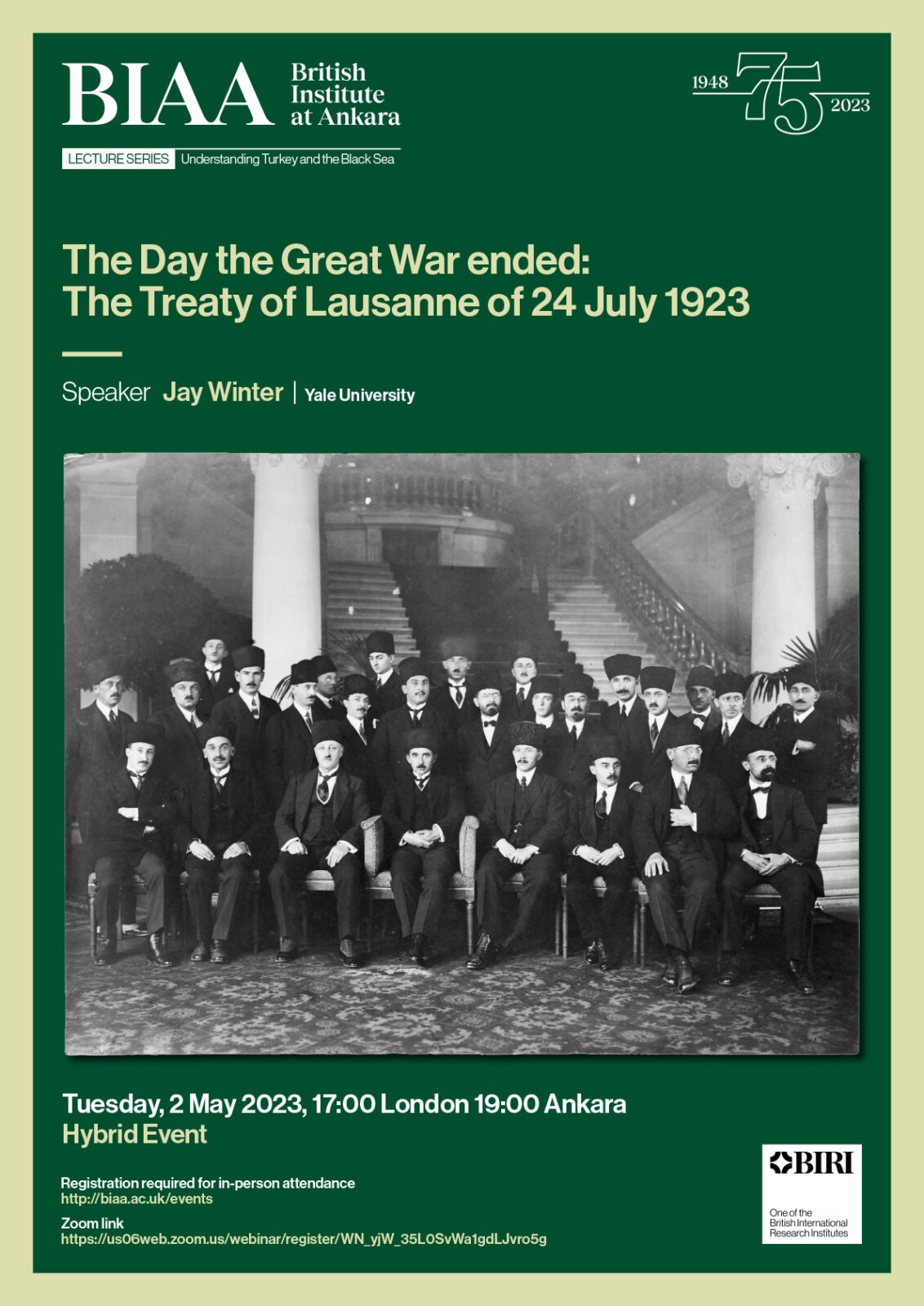
Location BIAA, 154 Atatürk Bulvarı, and online
Date and time
Tuesday 2 May 2023
16:00 - 17:30 (London GMT)
19:00 - 20:30 (Ankara UTC+3)
Speakers
Jay Winter
Yale University
Historians are agreed that 11 November 1918 was not the end of the Great War. Wars in many forms continued for four more years throughout Eastern Europe and Asia Minor. The day the Great War finally came to an end was 24 July 1923. On the shores of Lake Geneva, Turkey and her former enemies signed the Treaty of Lausanne. This lecture frames that story of Lausanne in terms of a new and disturbing phenomenon – the civilianization of war. During the Balkan wars, as well as during the Great War and in its aftermath, war mutated. The distinction between military and civilian targets was erased progressively, and non-combatants became the chief victims of armed conflict. Until then, wars ended with an exchange of prisoners of war. Lausanne was the first peace treaty which required a compulsory exchange of civilian populations.
Jay Winter is a historian of the First World War, trained at Columbia and Cambridge. His first job was at the Hebrew University of Jerusalem; he then taught at Warwick, Cambridge, Columbia, and Yale, from which he retired in 2015. His work has focused on many facets of the history of the Great War, including labour history, demographic history, and most recently, cultural history. He has been active in public history as well as academic history. He was a founder of the Historial de la Grande Guerre, Péronne, and served on its board of directors of its research centre for 30 years.